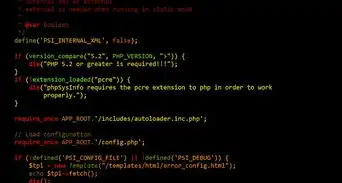本文目录导读:
In today's digital landscape, search engine optimization (SEO) plays a crucial role in the success of any website. To effectively manage your SEO efforts, having a reliable PHP source code can be immensely beneficial. This comprehensive guide will delve into the intricacies of SEO management using PHP, providing you with insights on how to optimize your website for better rankings and visibility.
Introduction to SEO Management PHP Source Code
SEO management involves various techniques aimed at improving a website's ranking in search engine results pages (SERPs). By leveraging PHP, developers can create custom solutions tailored to their specific needs. In this article, we'll explore the key aspects of SEO management PHP source code, including keyword research, on-page optimization, link building, and analytics tracking.
Keyword Research
Keyword research is the foundation of any successful SEO strategy. It helps identify relevant keywords that potential visitors are searching for. Using PHP, you can develop scripts to automate the process of finding high-volume keywords related to your niche.

图片来源于网络,如有侵权联系删除
Example Script:
<?php
$keyword = 'digital marketing';
$api_key = 'YOUR_API_KEY'; // Replace with your API key
// Make an API request to get keyword suggestions
$url = "https://api.example.com/keywords?query={$keyword}&key={$api_key}";
$response = file_get_contents($url);
$data = json_decode($response, true);
// Process the data
foreach ($data['suggestions'] as $suggestion) {
echo $suggestion . "\n";
}
?>
This script retrieves keyword suggestions from an external API and displays them on the webpage. You can further enhance it by integrating additional features like filtering out irrelevant keywords or sorting them based on search volume.
On-Page Optimization
On-page optimization involves optimizing individual web pages to rank higher and earn more relevant traffic in search engines. With PHP, you can implement various techniques such as meta tag generation, header tag optimization, and content analysis.
Example Script:
<?php
function optimizeMetaTags($title, $description, $keywords) {
echo "<meta name='title' content='{$title}'>";
echo "<meta name='description' content='{$description}'>";
echo "<meta name='keywords' content='{$keywords}'>";
}
optimizedMetaTags('Your Page Title', 'A brief description of your page.', 'keyword1, keyword2');
?>
This function generates HTML meta tags dynamically based on provided parameters. By incorporating such optimizations throughout your website, you can improve its overall SEO performance.
Link Building
Building quality backlinks is essential for enhancing your site's authority and credibility. PHP can assist in managing link-building campaigns by automating tasks like checking broken links, analyzing anchor text distribution, and monitoring referring domains.
Example Script:

图片来源于网络,如有侵权联系删除
<?php
function checkBrokenLinks() {
// Implement logic to scan all internal and external links
// Return an array of broken links
return ['http://example.com/broken-link'];
}
$broken_links = checkBrokenLinks();
if (!empty($broken_links)) {
foreach ($broken_links as $link) {
echo "Broken link found: {$link}<br>";
}
}
?>
This script demonstrates a simple example of checking for broken links within a website. Extending this functionality could involve sending notifications when new broken links are detected or automatically redirecting users to alternative pages.
Analytics Tracking
Tracking user behavior and website performance is vital for making informed decisions about SEO strategies. PHP can be used to integrate analytics tools like Google Analytics into your website, allowing you to monitor key metrics such as bounce rate, average session duration, and conversion rates.
Example Script:
<?php
function trackAnalytics($event_name, $category, $action) {
// Implement logic to send event data to Google Analytics
// Example: $_GET['ga_event'] = '{"name":"' . $event_name . '", "category":"' . $category . '", "action":"' . $action . '"}';
}
trackAnalytics('page_view', 'homepage', 'visited');
?>
By tracking events and interactions on your website, you gain valuable insights that can inform future SEO improvements.
Conclusion
SEO management PHP source code offers numerous benefits for website owners looking to enhance their online presence. From keyword research and on-page optimization to link building and analytics tracking, PHP provides the flexibility needed to tailor these processes to meet specific requirements. As technology evolves, so too must our approach to SEO; staying updated with the latest trends and utilizing powerful tools like PHP ensures continued success in the ever-changing world of search engine optimization.
标签: #seo管理 php源码



评论列表